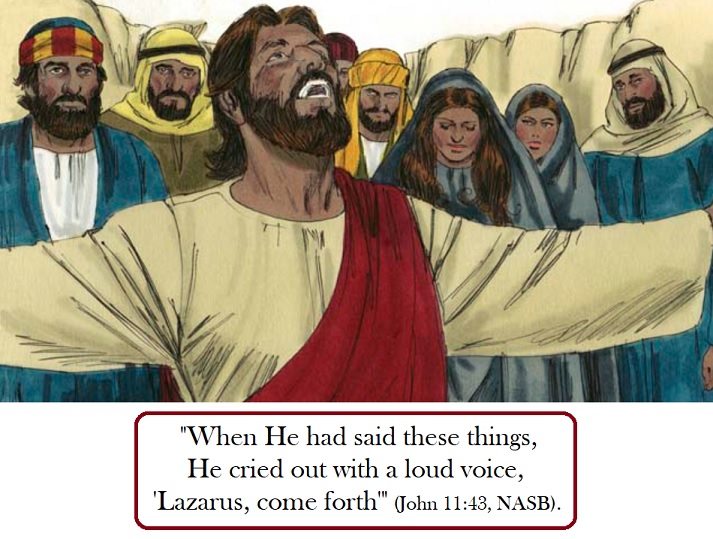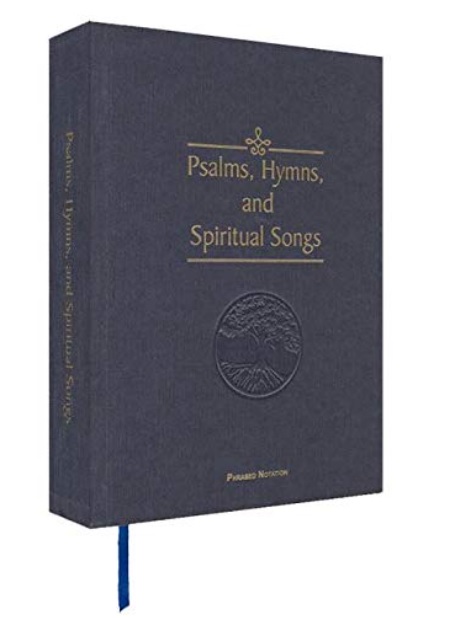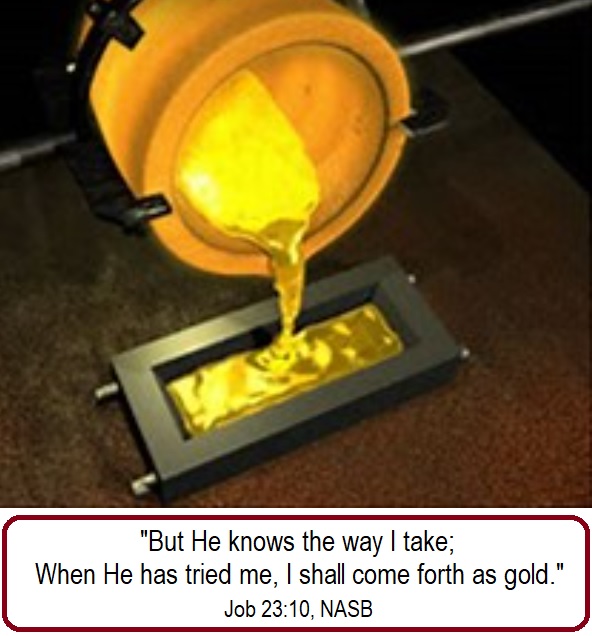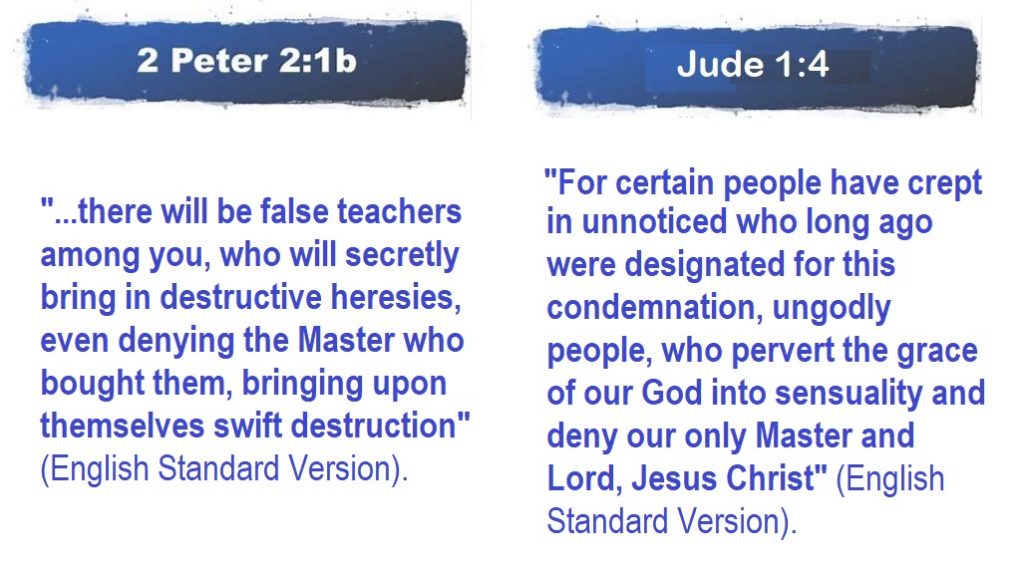“Go therefore and make disciples of all the nations…teaching them to observe all that I commanded you; and lo, I am with you always, even to the end of the age” (Matthew 28:19-20, NASB).
——————–
Contents:
1) Raising Lazarus (Frank Himmel)
2) Numbers, Life and Death (Bill Crews)
3) New Year’s Resolutions (Johnie Edwards)
4) Saved Like Noah (video sermon, Tom Edwards)
5) News & Notes
——————–

-1-
Raising Lazarus
Frank Himmel
Jesus’ miracles were signs, indicators of who He was. He said to skeptics, “If I do not do the works of My Father, do not believe Me; but if I do them, though you do not believe Me, believe the works, that you may know and understand that the Father is in Me, and I am in the Father” (John 10:37-38). No miracle better made the point than the resurrection of Lazarus (John 11:1-53).
Jesus was in Perea when He received word that Lazarus was sick. He responded, “This sickness is not unto death, but for the glory of God; that the Son of God may be glorified by it” (vs. 4). Lazarus would indeed die, but his death would not be the primary result of this sickness; Jesus’ glorification would be. How so? First, raising Lazarus would be a dramatic proof of Jesus’ deity. Second, this incident would trigger the official plotting of His own death. That, along with His subsequent resurrection and ascension, was Jesus’ crowning glory (cf. 7:39; 12:23).
Jesus delayed two days before leaving to go to Bethany where Lazarus lived. That had the effect of ensuring Lazarus’s death (he had been dead four days by the time Jesus arrived).
Lazarus’s sister Martha went out to meet Jesus, opining that had the Lord been there Lazarus would not have died. Jesus assured her that Lazarus would rise again. Martha believed that but thought only of the final resurrection. Jesus said, “I am the resurrection and the life” (v. 24). Earlier He affirmed that the Father had entrusted to Him life and judgment (John 5:21-29), prerogatives He possessed because of who He was. Martha readily confessed her faith in Him as the Son of God, yet she was slow to see these implications of His identity.
Lazarus’s other sister, Mary, then came out to meet Jesus, accompanied by a crowd of mourners. Together they all made their way to the tomb. Jesus ordered, “Remove the stone.” Martha, evidently thinking Jesus only wished to see the body, objected. The Lord reassured her. He then prayed aloud. He wanted all present to know that what was about to happen was done in conjunction with the Father, “so that they may believe that You sent Me” (v. 42). And with that He cried with a loud voice, “Lazarus, come forth.” He did, still bound in his burial wrappings.
Many who saw the miracle believed. Some reported it to the Pharisees. In their own words the Jewish rulers’ dilemma was, “This man is performing many signs. If we let Him go on like this, all men will believe in Him” (v. 47), and the rulers would lose their place. Something had to be done. Never mind the reality of Jesus’ signs. Never mind that they unmistakably verified His identity. Caiaphas, the high priest, put it bluntly: Jesus had to die. Ironically, these enemies of Jesus were setting the stage for His greatest miracle. Additionally, by their behavior they were bringing on themselves the very destruction they sought to avert. No one can escape the truth about Jesus.
— Via Pathlights, November 14, 2021
——————–

-2-
Numbers, Life and Death
Bill Crews
43, 54, 85, 50, 63, 57, 71, 65, 65, 68, 25, 93, 37, 47, 49, 58, 64, 16, 19, 91 and 81. Can you guess the source or significance of this collection of numbers? Each one is very much the number of a person. Each one represents the number of birthdays celebrated by an individual. Each one describes in years the life span of a real human being. They came from the obituary section of a Monday morning paper. These were the ages of the deceased. From 16 to 93! An average of 57! I grant that that average is below the life expectancies of both men and women, then and now, but they demonstrate well the fact that anyone can die at any age.
In view of the brevity and uncertainty of life, the certainty and finality of death, and the duration and nature of eternity (one heaven and one hell, forever), shouldn’t you start thinking about the condition and destiny of your soul — NOW? You are concerned about your mortal body; shouldn’t you be even more concerned about your immortal soul? You are concerned about your physical life; shouldn’t you be more concerned about your spiritual life? Your are concerned about material things; shouldn’t you be more concerned about spiritual things? You are concerned about time; shouldn’t you be more concerned about eternity?
Every day that we live among men, we are asked, “How are you?” or “How are you feeling?” Hardly anyone asks, “How’s your soul?” We are body-conscious; we have physical health-awareness. But we are being foolish and careless if we are not primarily concerned about the spiritual condition of our never-ending souls. Have you been saved from your sins? Are you a Christian? Are you faithful to God? Do you have the approval of God? Do you enjoy the life and peace and hope that are in Christ? In the words of a grand old song:
“A charge to keep I have,
A God to glorify;
A never-dying soul to save,
And fit it for the sky.
— Via Roanridge Reader, Volume 36, Issue 52, Page 1, December 26, 2021
——————–

-3-
New Year’s Resolutions
Johnie Edwards
With the coming of a new year comes those new year’s resolutions! Many are made only soon to be broken. This time of year does serve a good purpose of considering some spiritual resolutions which would be good for all of us to make and keep.
No Longer to Linger. The song, I Am Resolved serves as a reminder of some good resolutions. If you have not become a Christian, it is a good time to resolve to become one and quit lingering. Don’t be charmed by the world’s delight. Be aware there are things that are nobler. So a good question is: “What wait I for?” (Ps. 9:7).
To Go To The Savior. All of us would do well to go to the Lord at this time of the year as well as rest of the year. One reason for going to Him is because He “has the words of eternal life…” (Jn. 6:68). As one goes to Christ, he leaves his sins as they are remitted at baptism (Acts 2:38). As Jesus is the “saviour of the body, the church…” (Eph. 5:23; Col. 1:24); you will be “added to the church” (Acts 2:47).
To Follow Jesus. Since Jesus is the living way, we are instructed to follow Him. Peter declared, “For even hereunto were ye called: because Christ also suffered for us, leaving us an example, that ye should follow his steps” (1 Pet. 2:21).
To Enter The Kingdom. There is no greater resolution than that of being a citizen in the kingdom of God. The kingdom often has reference to the Lord’s church (Mt. 16:18-19). We enter the kingdom by being “born of water and the Spirit” (Jn. 3:3-5). This takes place when one is “baptized into Christ” (Gal. 3:27).
To Be More Faithful. The Lord’s people are described as “stewards,” and they must “be found faithful” (1 Cor. 4:1). A lot of church members choose not to be counted faithful. If we expect the Lord to say, “Well done,” we must “be faithful” (Mt. 25:21). Do you need to make a resolution on this count?
To Be The Best Example. There is a great demand for some good example setting! Fellow workers need it, our children need it, and other church members need it. After all, we must “shine as lights in the world” (Mt. 5:14-16; Phil. 2:15). May each of us plan to be the best example as folks “read our epistle” (2 Cor. 3:2).
Don’t forget to keep your resolutions!
— Via Back To Basics, Volume 6, Number 1, January 2008
——————–
-4-
Saved Like Noah
Tom Edwards
For the video sermon with the above title, which has been adapted from a sermon outline made by Johnie Edwards many years ago, just click on the following link while on the Internet:
https://thomastedwards.com/wordpress/Saved_Like_Noah.mp4
——————–
-5-
News & Notes
Folks who are ill with the coronavirus: Danny, Jan, and Danielle Bartlett; Doug and Marie Pennock; Richard and Tammy Griffey; Deborah Medlock; and Mikaela Jones.
The worst of the virus is over for Doug and Marie. They are getting better.
For Richard, the virus has been like a cold; and similar for Danny. So the symptoms have not been too severe for any of these.
Ronnie and Melotine Davis have also been ill, but “hanging in there,” as Melotine told me.
Danielle is still in the hospital with pneumonia, and her coronavirus is also mild.
Let us also be remembering in prayer: the family and friends of Ron Montero; and Rick Cuthbertson, Jim Lively, Rex Hadley, Vivian Foster, Kayla Williams, and Kim Rowell.
——————–
The Steps That Lead to Eternal Salvation
1) Hear the gospel — for that is how faith comes (Rom. 10:17; John 20:30-31).
2) Believe in the deity of Jesus Christ, the Son of God (John 8:24; John 3:18).
3) Repent of sins. For every accountable person has sinned (Romans 3:23; Romans 3:10), which causes one to be spiritually dead (Ephesians 2:1) and separated from God (Isaiah 59:1-2; Romans 6:23). Therefore, repentance of sin is necessary (Luke 13:5; Acts 17:30). For whether the sin seems great or small, there will still be the same penalty for either (Matt. 12:36-37; 2 Cor. 5:10) — and even for a lie (Rev. 21:8).
4) Confess faith in Christ (Rom. 10:9-10; Acts 8:36-38).
5) Be baptized in water for the remission of sins (Mark 16:16; Acts 2:38; 22:16; 1 Pet. 3:21). This is the final step that puts one into Christ (Gal. 3:26-27). For from that baptism, one is then raised as a new creature (2 Cor. 5:17), having all sins forgiven and beginning a new life as a Christian (Rom. 6:3-4). For the one being baptized does so “through faith in the working of God” (Col. 2:12). In other words, believing that God will keep His word and forgive after one submits to these necessary steps. And now as a Christian, we then need to…
6) Continue in the faith by living for the Lord; for, if not, salvation can be lost (Matt. 24:13; Heb. 10:36-39; Rev. 2:10; 2 Pet. 2:20-22).
——————–
Tebeau Street
CHURCH OF CHRIST
1402 Tebeau Street, Waycross, GA 31501
Sunday: 9 a.m. Bible Class and 10 a.m. Worship Service.
We also have a Song Service at 5 p.m. for every first Sunday of the month.
evangelist/editor: Tom Edwards (912) 281-9917
Tom@ThomasTEdwards.com
https://thomastedwards.com/go/all.htm/ (This is a link to the older version of the Gospel Observer website, but with bulletins going back to March 4, 1990.)


















